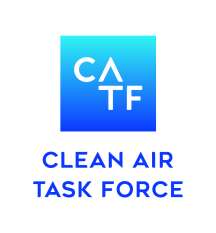To avoid the worst impacts of climate change, we must reduce global greenhouse gas emissions to net-zero, all while increasing energy access to billions of people living in energy poverty. It’s a massive challenge and the timeline is daunting, but there is HOPE!
With a deep understanding of policy, science, and technology innovation, Clean Air Task Force (CATF) is working to rapidly reduce emissions while advancing bold climate solutions that can truly make a difference. CATF is a global nonprofit organization with over 25 years of internationally recognized experience working to safeguard against the worst impacts of climate change. We have a fierce commitment to fully exploring all potential solutions and the bold ideas needed today to solve the climate crisis.
CATF defines climate and air pollution problems at their root cause. We stay grounded in facts and science. We look for the biggest levers of change and realistic, scalable solutions. We build partnerships to solve problems, but we are not afraid to challenge conventional wisdom about technologies or policies. We act with a sense of urgency, but also respect the size of the problem and plan for the long game.
CATF started in 1996 with seven staff and a specific goal: reducing carbon emissions from United States power plants. We worked to put in place regulations that are saving tens of thousands of lives, while helping to retire a third of the nation’s coal plants. Twenty-five years later, CATF has become an international organization that continues to grow, with over 180 experts and a scope that now extends to nearly everything related to climate and energy.
CATF’s approach is centered on four key areas:
• Communicate the size of the climate problem and the necessary solutions.
• Make available the full suite of emissions reduction options – like advanced renewables, zero-carbon fuels, carbon management, advanced nuclear, and superhot rock energy – at an affordable cost.
• Change business models to include manufacturable energy solutions that can be deployed anywhere quickly.
• Change government policy to develop, demonstrate, and scale-up the technologies and systems needed to achieve net-zero emissions by 2050.
With the support of our donors and partners, we will hold the line against attacks on clean air and climate protection rules, advance zero-carbon technologies and innovative energy policy, and overcome the climate challenges facing our planet.





